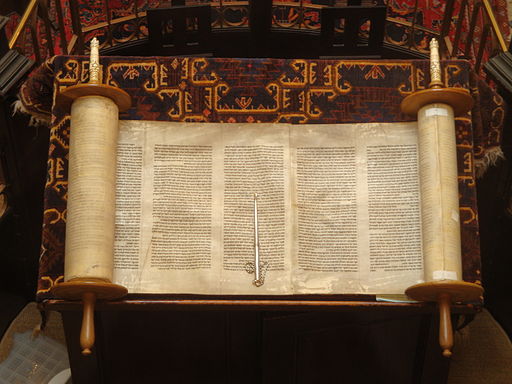How does God reveal himself to mankind?
“For since the creation of the world God’s invisible qualities—his eternal power and divine nature—have been clearly seen, being understood from what has been made, so that people are without excuse.” Romans 1:20
Our beliefs:
… about the Holy Bible
Our churches believe that the Holy Bible is the Word of God. This Word has no equal because it is:
- Inspired by God the Holy Spirit who caused many different men to write it over a considerable period of time.
- Infallible in that it is a completely reliable and trustworthy book which should not and need not be doubted.
- Inerrant, meaning that whatever is revealed in it is without error, contradiction or misrepresentation.
- Sufficient because it fully contains the will of God and reveals all that we need to believe in order to be saved.
- This Word represents the final rule of faith and life in our churches. We receive it for regulation, foundation and confirmation of our faith. It serves as the basis for all authority in our churches
- We believe that the Bible is God’s divine revelation through which He reveals to us His will. Therefore, the Word is the final authority for life. By this divine Word, God clearly reveals Himself to us, as far as is necessary for us to know in this life, to His glory and our salvation. The Bible therefore clearly explains to us the way of salvation through Jesus Christ, the Son of God.
“…the message I proclaim about Jesus Christ, in keeping with the revelation of the mystery hidden for long ages past, but now revealed and made known through the prophetic writings by the command of the eternal God, so that all the Gentiles might come to the obedience that comes from faith…” Romans 16:25,26
…about the True Church
We believe there is one holy, universal Church which has existed from the beginning of the world and will exist to the end of times. It is gathered and upheld by the Lord God, through His Son, Jesus Christ. We further believe that the marks by which the Church is known are these:
1) The pure preaching of the gospel
2) The pure administration of the sacraments (Baptism and Lord’s Supper)
3) The practice of church discipline, which includes preserving and promoting harmony and unity within the Church as well as keeping all members obedient to God.
In short, all things must be managed according to the Word of God and all things contrary must be rejected.
Historically, we trace our roots through the Reformation of the 16th century (see below), right back through the ancient church and before that through Israel, all the way back to Abraham and even to Adam, the worlds’ first believer.
As we are a “Reformed” Church, we follow and adhere to certain creeds and confessions. Historically, these creeds and confessions were set up to define what all true believers should know, confess and live by. Basically, it is a summarized version of what the Bible teaches. As there are many different beliefs in the world, we also use these creeds and confessions to counter heresy (false religion). False religions should not surprise us, as the Bible teaches and warns us about this:
” Beloved, do not believe every spirit, but test the spirits, whether they are of God; because many false prophets have gone out into the world.” 1 John 4:1
There are three ecumenical creeds that we adhere to:
The Apostle’s Creed
This creed is called the Apostles’ Creed, not because it was written by the apostles themselves, but because it contains a brief summary of their teachings. It sets forth their doctrine, as has been said, “in sublime simplicity, in unsurpassable brevity, in beautiful order, and with liturgical solemnity.” The Apostles’ Creed is based on the creed used in Rome around 400 A.D., which in turn goes back another two hundred years. It is typical of the creeds used in the western part of the Roman empire.
The Nicene Creed
The Nicene Creed, also called the Nicaeno-Constantinopolitan Creed, is a statement of the orthodox faith of the early Christian church, in opposition to certain heresies, especially Arianism. These heresies concerned the doctrine of the Trinity and of the person of Christ and were refuted at the Council of Nicea (325 A.D.). Yet it was not this Council but the Council of Constantinople (381 A.D.) which adopted the Nicene Creed. This Council incorporated into its creed various formulations from the decisions of Nicea and expanded the confession concerning the Holy Spirit. The Nicene Creed is typical of the creeds used in the eastern part of the Roman empire. Both the Eastern and the Western church held it in honour, although with one important difference. The Western church included the phrase “and the Son” (known as the Filioque) in the article on the procession of the Holy Spirit, a phrase which to this day is repudiated by the Eastern church.
The Athanasian Creed
This creed is named after Athanasius (293-373 A.D.), the champion of orthodoxy over against Arian attacks on the doctrine of the Trinity. Although Athanasius did not write this creed and it is improperly called after him, the name persists because until the seventeenth century it was commonly ascribed to him. It is also called the Quicunque, this being its opening word in the Latin original. Apart from the opening and closing sentences, it consists of two sections, the first setting forth the orthodox doctrine of the Trinity (3-28), and the second dealing with the doctrine of Christ, especially concerning the two natures (29-43). The teachings of Augustine (354-430 A.D.) in particular form the background to the Christological section. The creed itself appears for the first time in the first half of the sixth century, but the author is unknown. It is of Western origin, and is not recognized by the Eastern Orthodox Churches.
In addition to following the three ecumenical creeds, we adhere to the following confessions:
– The Heidelberg Catechism
– The Canons of Dort (Links are from the Canadian and American Reformed churches)
As a Reformed church, our history and confessions are rooted in the 16th century reformation that changed and reformed the church and society as a whole; the effects that we still experience today.
God worked through common people and pastors alike, to cleanse His church from false doctrine and preserve true doctrine and His church worldwide, until this day.
One of the great reformers was John Calvin, and based on this, we are sometimes called “calvinists”. (See picture on the right)
There were also other important reformers like, Marten Luther, Ulrich Zwingli, Theodore Beza, William Farrell, John Knox and many others who followed in their foot steps.
We are called “Free Reformed” based on our church history in the Reformed churches in the Netherlands from the last century.
“Free” basically means our desire to remain free from the hierarchy of broader church assemblies and free from false doctrines. We honour the position of the local church as the only ecclesiastical assembly which has received authority from Christ, and which answers to Christ alone.
Because we are convinced of the need for mutual support, we belong to a federation of churches, called The Free Reformed Churches of Australia. In order to maintain unity in this federation, we promise to submit to all decisions made in the broader assemblies which agree with the Word of God and the Church Order.(see above) This is called our “system of church government”.
There are 14 congregations in the federation of churches in WA and 2 in Tasmania with more than 4000 members.(Wikipedia link for Free Reformed Churches of Australia)


